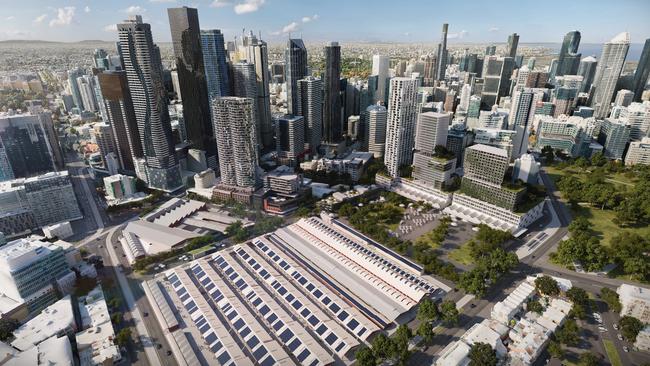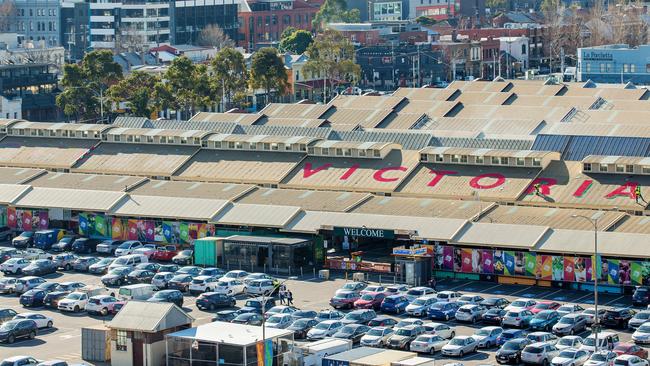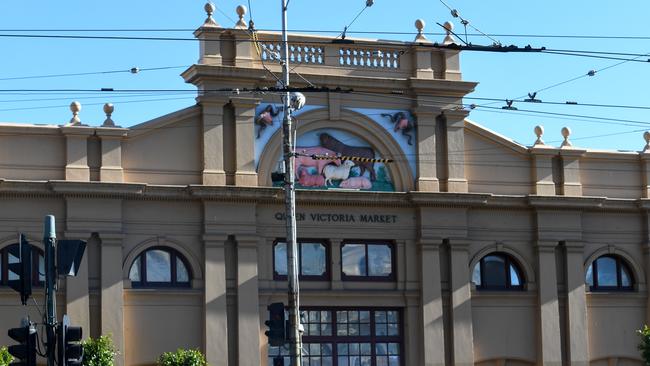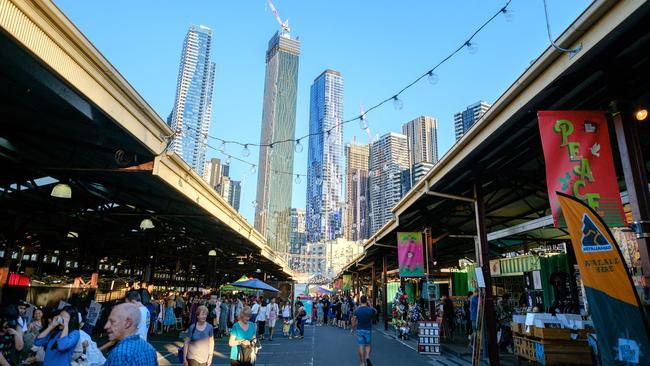Queen Victoria Market revelopment faces planning hurdle in latest revamp plan
The latest proposal to redevelop the Queen Victoria Market may have hit a hurdle even before the final plans have been drawn up, with the long-running saga described as “Brexit-like” by one trader.

VIC News
Don't miss out on the headlines from VIC News. Followed categories will be added to My News.
A looming change to planning laws in central Melbourne could scupper a key feature of the city council’s latest attempt to redevelop Queen Victoria Market even before final plans have been drawn up.
The push for a southern development site on Franklin St that will accommodate three levels of carparking is in doubt because of proposed planning changes.
Town Hall, itself, has pushed for the new rules to arrest the trend of developers using the lower levels of major buildings for carparking. The C308 amendment could be in place by the middle of the year just as the council hopes to kickstart QVM 2.0.

The alternative of underground parking would also blow out the $280 million budget by another $30 million, Deputy Mayor Arron Wood said.
“C308 and its implications for the southern development site to me are critical in terms of balancing the budget for this project because if we have to adhere to our own planning scheme amendments, that parking goes underground and we’re looking at a cost of $30 million.’’
It comes as councillors sign off on the latest blueprint for the heritage-listed site, revealed last week and almost seven years since the redevelopment process began.

The latest strategy includes a 1.5ha piazza on the current carpark and pedestrianisation of the market’s Queen St section.
The century-old sheds will be renovated on site, not dismantled, which was the main reason Heritage Victoria rejected the initial plan.
Traders urged councillors to push on with the revamp but some wondered if the southern carpark site was too far away, and questioned the need for open space.

“People come to the market to shop, not to have a picnic,’’ trader Leah Moore said.
Stallholder Marshall Waters supported the latest plan but described the protracted process as “Brexit-like”.
The $280 million project cost includes the $20 million spent on previous plans and consultancies so far.
More detailed plans are expected in August.



